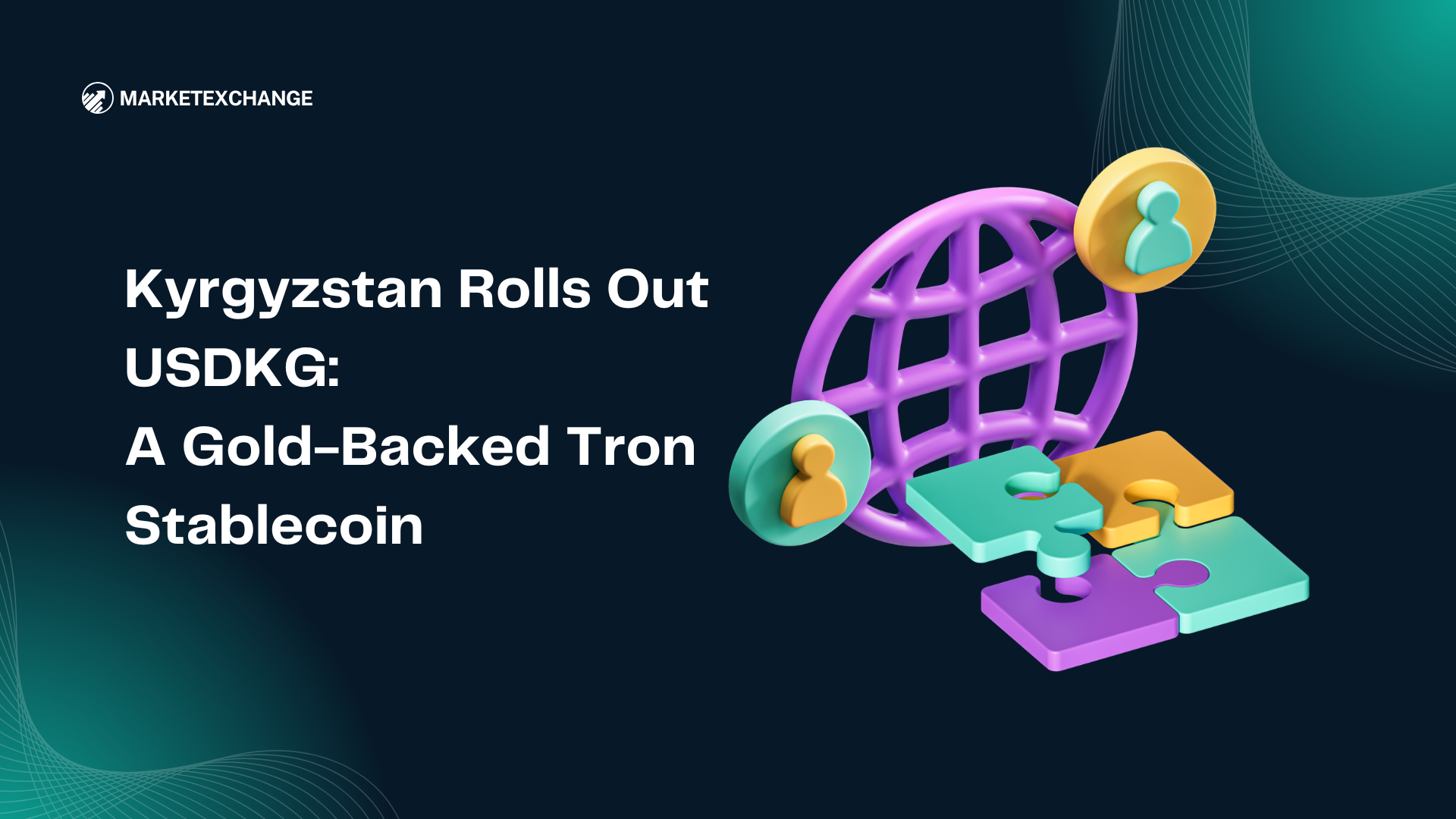
Kyrgyzstan has officially launched USDKG, a gold-backed stablecoin pegged 1:1 to the U.S. dollar, putting 50 million tokens into circulation in an inaugural issuance. The rollout, presented at an official ceremony in Bishkek, is part of the country’s broader digital-assets strategy to pair real-world collateral with blockchain rails.
What exactly launched?
At the launch event, officials triggered a “Launch Issue” command that minted 50 million USDKG on the Tron blockchain. Each token corresponds to one U.S. dollar and is stated to be fully backed by physical gold held in Kyrgyz reserves. Local and regional agencies, including Xinhua and Interfax, confirmed both the size of the first tranche and its issuance on Tron.
International outlets also reported the issuance scale and peg. Reuters put the first batch at over $50 million in tokens, tying the launch to the country’s financial regulator and positioning USDKG as a national stablecoin initiative rather than a private pilot.
Who issues USDKG—and why it’s not a CBDC
USDKG is being issued by OJSC “Issuer of Virtual Assets” (sometimes rendered as “Virtual Assets Issuer”), a state-owned company whose 100% shareholder is the Ministry of Finance, according to launch communications. Importantly, the project’s materials emphasize that USDKG is not a central bank digital currency (CBDC); it’s a government-supported stablecoin with operational responsibilities delegated to contracted entities within the Kyrgyz Republic. Press statements stress this separation to clarify governance and regulatory treatment.
The official USDKG website echoes that framing, describing a regulated issuance backed by the Ministry of Finance and positioning the asset as a “Gold Dollar” that blends gold’s stability with blockchain settlement. While marketing language is not a substitute for regulation, it helps explain how the issuer wants institutions to perceive the token.
How it’s backed—and early reserve signals
Kyrgyz authorities previewed this launch earlier in the year with plans for substantial gold reserves. Coverage from CoinDesk and ForkLog in May cited officials and advisers who described a $500 million gold backing at debut with an ambition to scale to $2 billion over time—context that aligns with the “fully backed by physical gold” language used during launch week. The issuer and government communications also highlight audits and transparency as part of the operating model.
USDKG’s site reiterates that independent audits precede any issuance and that tokens are redeemable under specified conditions—claims that market participants will watch closely as circulation grows and secondary-market trading begins.
What it’s for: cross-border payments and trade
Policy officials have framed USDKG as a tool for cross-border payments, trade settlement, and broader digital finance use cases in and beyond Central Asia. Earlier briefings suggested a regional rollout first, followed by expansion toward the Middle East and Southeast Asia—a way to test corridors where traditional banking can be slow or costly. The issuer has also signaled plans to list USDKG on centralized and decentralized platforms, which would broaden access and liquidity if executed.
Why this matters
For a smaller, resource-rich economy like Kyrgyzstan, a gold-collateralized, dollar-pegged token aims to combine the price stability associated with gold with the operational efficiency of public blockchains. That mix could appeal to exporters, importers, and remittance users who want faster settlements without volatile exchange rates. The choice of Tron for issuance suggests a focus on low fees and broad wallet/exchange support from day one.
Crucially, positioning USDKG as state-backed but not a CBDC sidesteps the monetary-policy implications of a central-bank liability on a public chain. Instead, the structure resembles a government-owned issuer running a fully reserved token, with the Ministry of Finance as the anchor stakeholder. That design—if coupled with credible audits and redemptions—may be easier for private-sector partners and foreign institutions to integrate than a pure retail CBDC.
Open questions and risks
As with any gold-backed stablecoin, the market will look for evidence that reserves, audits, and redemption mechanics work as advertised. Regular third-party attestations, clear redemption terms, and transparent wallet disclosures can build trust beyond press releases. Another watchpoint is on-chain liquidity: listings, market-maker support, and cross-chain bridges will shape spreads and real-world usability in the early months.
Regulatory clarity will also matter outside Kyrgyzstan. Even if USDKG is fully compliant domestically, foreign exchanges and payment firms will assess KYC/AML, provenance of reserves, and governance before onboarding. That’s standard for any government-linked token but especially vital for one that plans to facilitate cross-border flows.
Bottom line
Kyrgyzstan’s USDKG is now live with an initial 50 million tokens and a clear promise: one token equals one U.S. dollar, fully backed by gold, and issued by a state-owned entity—not the central bank. Execution will determine whether it becomes a regional settlement tool or just another headline. The first signals—issuance on a widely used chain, explicit non-CBDC status, and public commitments to audits—set the stage. Now the market will look for listings, transparency, and real-world adoption to validate the model.